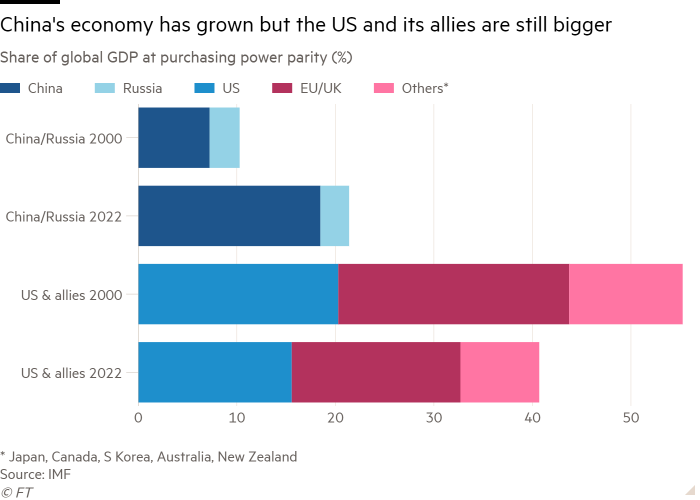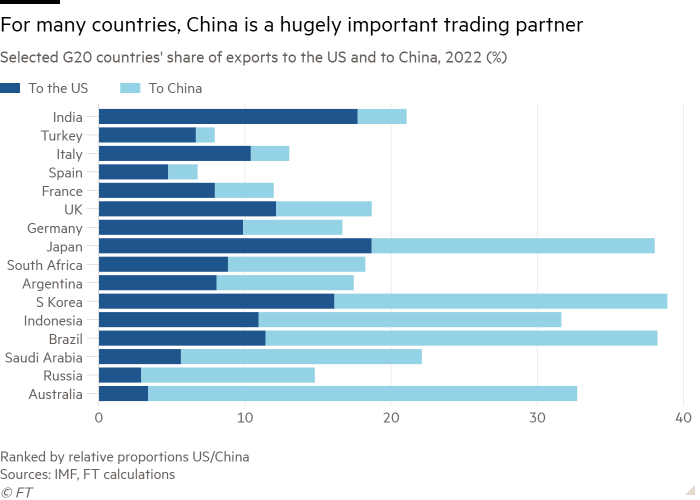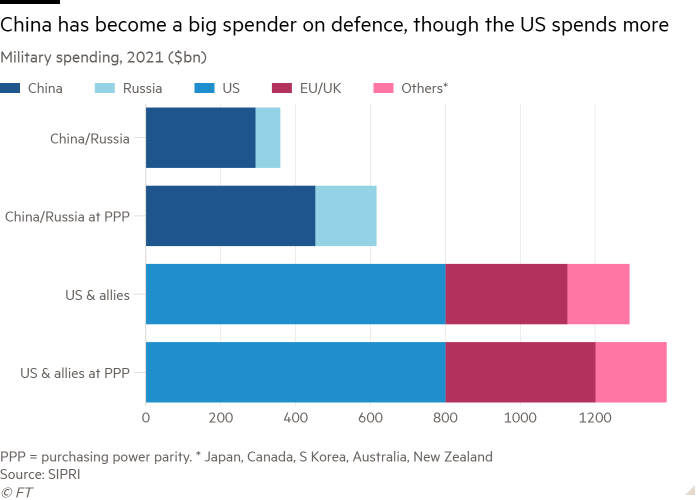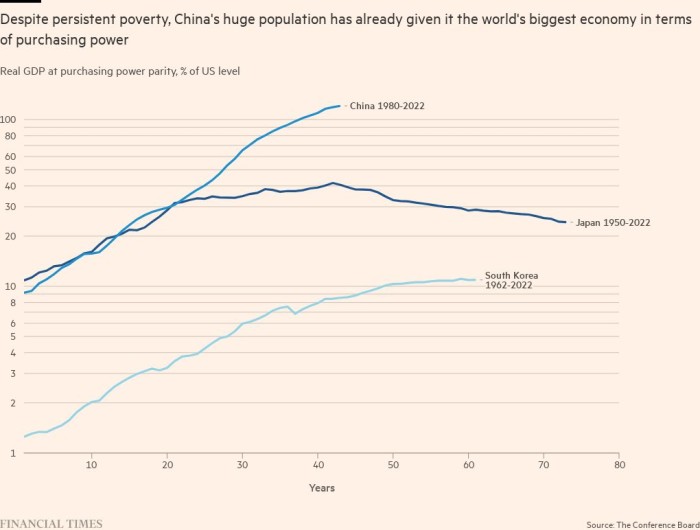[ad_1]
The relationship between the US and China is likely to determine humanity’s fate in the 21st century. It will determine whether there will be peace, prosperity and protection of the planetary environment, or the opposites. Should it be the latter, future historians (if any such actually exist) will surely marvel at the inability of the human species to protect itself against its own stupidity. Yet today, happily, we can still act to prevent disaster. That is true in many domains. Among these is economics. How then are economic relations to be best managed in the increasingly difficult future we confront?
Janet Yellen, US Treasury secretary, and Ursula von der Leyen, president of the European Commission, have both recently made thoughtful statements on this topic. But do they set out a workable future? On that I am, alas, doubtful.
Yellen sets out a plan for what she calls “constructive engagement”. This has three elements: first, “secure our national security interests and those of our allies and partners, and . . . protect human rights”; second, “seek a healthy economic relationship” based on “fair” competition; and, third, “seek co-operation on the urgent global challenges of our day”. In her discussion of the first element, she makes the point that US “national security actions are not designed for us to gain a competitive economic advantage, or stifle China’s economic and technological modernisation”. Yet the difficulty is that this is not at all how it looks in China, as I learnt during a brief recent stay in Beijing.
Yellen’s discussion of the crucial security element brings out how problematic it has to be. She stresses, for example, US concern about China’s “no limits” partnership and support for Russia, and warns it against providing material support or help in evading sanctions. She stresses, too, US concerns over human rights, including those the Chinese regard as purely internal matters.
Notwithstanding such concerns, she states that “we do not seek to ‘decouple’ our economy from China’s”. On the contrary, a “growing China that plays by the rules can be beneficial for the US”. After all, she reminds us, the US trades more with China than with any other country, except Canada and Mexico. Nevertheless, she adds, the US objects to China’s many “unfair” trade practices and will continue to “take co-ordinated actions with our allies and partners in response”. Action on supply chains, including “friendshoring” is one result.
Von der Leyen’s approach is complementary. She, too, states that “decoupling is clearly not viable, desirable or even practical for Europe”. Yet China, she argues, “has now turned the page on the era of ‘reform and opening’ and is moving into a new era of ‘security and control’”. Her focus, much like that of the US, is on “de-risking” the relationship. One way is by removing vulnerabilities and preserving strategic autonomy. As in the US, this involves strategic investments in certain key sectors. Another way is by active use of trade defence instruments. Yet another is by inventing new instruments to ensure that European companies’ capital and knowledge “are not used to enhance the military and intelligence capabilities of those who are also our systemic rivals”. This could include controls on outbound investment. A final way is deeper co-operation with partners.
In a recent, notably pessimistic book, The Avoidable War, Kevin Rudd, former prime minister of Australia, argues for what he calls “managed strategic competition” between the US and Xi Jinping’s China. Yellen and von der Leyen are, one might argue, fleshing out the economic elements of this approach.

If so, it is unlikely to work. Unilateral efforts on one side to feel more secure are bound to make the other side more insecure. This is evidently true in the security area, narrowly defined. If one side has a lead in a fundamental technology, the other will be vulnerable. But it is also true in economics. Refusal to sell strategically vital technologies or resources — or even the possibility of that happening at some moment in future — will make the other side feel economically insecure. Indeed, it became clear in Beijing that informed Chinese believe that the US does indeed aim to thwart its economic rise. US controls on chip exports may be designed to strengthen US security. But they are also a curb on China’s economy. The two cannot be separated.

Nor is this conflict likely to get easier. Measured in comparable terms (at “purchasing power parity”), the economies of the US and its allies remain some 80 per cent bigger than those of China and Russia together. Yet China is still a poor country: at PPP, China’s GDP per head in 2022 was still less than 30 per cent that of the US. Suppose it managed to reach the current relative position of South Korea. Its economy would then be almost half as big again as those of the US and EU, combined. Will this happen? Probably not. But, given past performance, it cannot be ruled out. In any case, China already has a potent economy, a big role in world trade and a huge military. (See charts.)

The era of strategic confrontation we have entered is frightening. This is especially so for those of us who want the ideals of individual freedom and democracy to thrive, while co-operating with China in both sustaining peace and prosperity and protecting our precious planet. Somehow, we have to co-operate and compete, while also avoiding military conflict. Our starting point must be to achieve the greatest possible transparency over our aims and plans. We learnt the necessity of that after the Cuban missile crisis in 1962. But we will need far more than that and probably for longer. Few leaders in history have borne a heavier moral burden than those of today.
[ad_2]
Source link



